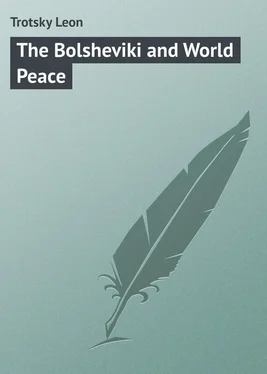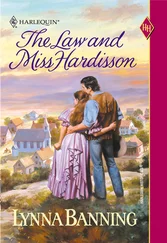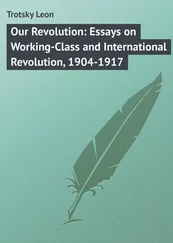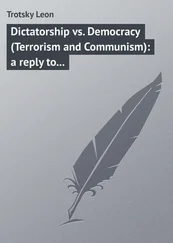Leon Trotsky - The Bolsheviki and World Peace
Здесь есть возможность читать онлайн «Leon Trotsky - The Bolsheviki and World Peace» — ознакомительный отрывок электронной книги совершенно бесплатно, а после прочтения отрывка купить полную версию. В некоторых случаях можно слушать аудио, скачать через торрент в формате fb2 и присутствует краткое содержание. ISBN: , Жанр: foreign_language, Русская классическая проза, на английском языке. Описание произведения, (предисловие) а так же отзывы посетителей доступны на портале библиотеки ЛибКат.
- Название:The Bolsheviki and World Peace
- Автор:
- Жанр:
- Год:неизвестен
- ISBN:http://www.gutenberg.org/ebooks/40273
- Рейтинг книги:4 / 5. Голосов: 1
-
Избранное:Добавить в избранное
- Отзывы:
-
Ваша оценка:
- 80
- 1
- 2
- 3
- 4
- 5
The Bolsheviki and World Peace: краткое содержание, описание и аннотация
Предлагаем к чтению аннотацию, описание, краткое содержание или предисловие (зависит от того, что написал сам автор книги «The Bolsheviki and World Peace»). Если вы не нашли необходимую информацию о книге — напишите в комментариях, мы постараемся отыскать её.
The Bolsheviki and World Peace — читать онлайн ознакомительный отрывок
Ниже представлен текст книги, разбитый по страницам. Система сохранения места последней прочитанной страницы, позволяет с удобством читать онлайн бесплатно книгу «The Bolsheviki and World Peace», без необходимости каждый раз заново искать на чём Вы остановились. Поставьте закладку, и сможете в любой момент перейти на страницу, на которой закончили чтение.
Интервал:
Закладка:
Trotzky is against all the present governments of Europe, and the "bourgeois system" everywhere in the world. He isn't pro-Allies; he isn't even pro-Russian. He isn't a patriot at all. He is for a class, the proletariat, the working people of all countries, and he is for his class only to get rid of classes and get down or up to-humanity. And so with his people.
The Russians have listened to the Socialist propaganda for generations now. They have learned the chief lessons it has taught: liberty, land, industrial democracy and the class-war the world over. This War was not their war; it was the Czar's war; a war of the governments in the interest of their enemies, the capitalists of their several countries, who, as Trotzky says, were forcing their states to fight for the right to exploit other and smaller peoples. So when they overthrew the Czar, the Russians wanted to drop his war and go into their own, the class war. Kerensky held them at the front in the name of "the" Revolution; he would get peace for them by arrangement with the allies. He didn't; he couldn't; he was dismissed by them. Not by the Bolsheviki, but by the Russian people who know the three or four things they want: land and liberty at home; the Revolution and Democracy for all the world.
I heard a radical assert one day that that was the reason Trotzky could be such an exception to the rule about radicals in power. He came to the head of the Russian Revolution when his ideas were the actual demands of the Russian people and that it was not his strength of character, but the force of a democratic public opinion in mob power, which made him stick to his philosophy and carry out his theories and promises. I find upon inquiry here in New York that while he was living and working as a journalist on the East Side, he left one paper after another because he could not conform, to their editorial policies and would not compromise. He was "stiff-necked," "obstinate," "unreasonable." In other, kinder words, Trotzky is a strong man, with a definite mind and a purpose of his own, which he has the will and the nerve to pursue.
Also, however, Trotzky is a strong man who is ruled by and represents a very simple-minded people who are acting like him, literally upon the theory that the people govern now, in Russia; the common people; and that, since they don't like the War of the Czar, the Kaiser, the Kings and the Emperors, their government should make peace with the peoples of the world, a democratic peace against imperialism and capitalism and the state everywhere, for the establishment in its stead of a free, world-wide democracy.
That may be the true explanation of Trotzky's Bolshevik peace policy in the world crisis of the World War. That is the explanation which is suggested by this book.
"Written in extreme haste," he says at the close of his preface, "under conditions far from favorable to systematic work … the entire book, from the first page to the last, was written with the idea of the New International constantly in mind-the New International which must rise out of the present world cataclysm, the International of the last conflict and the final victory."
LINCOLN STEFFENS.
New York, January 4th, 1918
AUTHOR'S PREFACE
The forces of production which capitalism has evolved have outgrown the limits of nation and state. The national state, the present political form, is too narrow for the exploitation of these productive forces. The natural tendency of our economic system, therefore, is to seek to break through the state boundaries. The whole globe, the land and the sea, the surface as well as the interior, has become one economic workshop, the different parts of which are inseparably connected with each other. This work was accomplished by capitalism. But in accomplishing it the capitalist states were led to struggle for the subjection of the world-embracing economic system to the profit interests of the bourgeoisie of each country. What the politics of imperialism has demonstrated more than anything else is that the old national state that was created in the revolutions and the wars of 1789-1815, 1848-1859, 1864-1866, and 1870 has outlived itself, and is now an intolerable hindrance to economic development.
The present War is at bottom a revolt of the forces of production against the political form of nation and state. It means the collapse of the national state as an independent economic unit.
The nation must continue to exist as a cultural, ideologic and psychological fact, but its economic foundation has been pulled from under its feet. All talk of the present bloody clash being a work of national defense is either hypocrisy or blindness. On the contrary, the real, objective significance of the war is the breakdown of the present national economic centres, and the substitution of a world economy in its stead. But the way the governments propose to solve this problem of imperialism is not through the intelligent, organized coöperation of all of humanity's producers, but through the exploitation of the world's economic system by the capitalist class of the victorious country; which country is by this War to be transformed from a great power into the world power.
The War proclaims the downfall of the national state. Yet at the same time it proclaims the downfall of the capitalist system of economy. By means of the national state capitalism has revolutionized the whole economic system of the world. It has divided the whole earth among the oligarchies of the great powers, around which were grouped the satellites, the small nations, who lived off the rivalry between the great ones. The future development of world economy on the capitalistic basis means a ceaseless struggle for new and ever new fields of capitalist exploitation, which must be obtained from one and the same source, the earth. The economic rivalry under the banner of militarism is accompanied by robbery and destruction which violate the elementary principles of human economy. World production revolts not only against the confusion produced by national and state divisions but also against the capitalist economic organization, which has now turned into barbarous disorganization and chaos.
The War of 1914 is the most colossal breakdown in history of an economic system destroyed by its own inherent contradictions.
All the historical forces whose task it has been to guide the bourgeois society, to speak in its name and to exploit it, have declared their historical bankruptcy by the War. They defended capitalism as a system of human civilization, and the catastrophe born out of that system is primarily their catastrophe. The first wave of events raised the national governments and armies to unprecedented heights never attained before. For the moment the nations rallied around them. But the more terrible will be the crash of the governments when the people, deafened by the thunder of the cannon, realize the meaning of the events now taking place in all their truth and frightfulness.
The revolutionary reaction of the masses will be all the more powerful the more prodigious the cataclysm which history is now bringing upon them.
Capitalism has created the material conditions of a new Socialist economic system. Imperialism has led the capitalist nations into historic chaos. The War of 1914 shows the way out of this chaos by violently urging the proletariat on to the path of Revolution.
For the economic backward countries of Europe the War brings to the fore problems of a far earlier historic origin-problems of democracy and national unity. This is in a large measure the case with the peoples of Russia, Austria-Hungary and the Balkan Peninsula. But these historically belated questions, which were bequeathed to the present epoch as a heritage from the past, do not alter the fundamental character of the events. It is not the national aspirations of the Serbs, Poles, Roumanians or Finns that has mobilized twenty-five million soldiers and placed them in the battlefields, but the imperialistic interests of the bourgeoisie of the Great Powers. It is imperialism that has upset completely the European status quo , maintained for forty-five years, and raised again the old questions which the bourgeois revolution proved itself powerless to solve.
Читать дальшеИнтервал:
Закладка:
Похожие книги на «The Bolsheviki and World Peace»
Представляем Вашему вниманию похожие книги на «The Bolsheviki and World Peace» списком для выбора. Мы отобрали схожую по названию и смыслу литературу в надежде предоставить читателям больше вариантов отыскать новые, интересные, ещё непрочитанные произведения.
Обсуждение, отзывы о книге «The Bolsheviki and World Peace» и просто собственные мнения читателей. Оставьте ваши комментарии, напишите, что Вы думаете о произведении, его смысле или главных героях. Укажите что конкретно понравилось, а что нет, и почему Вы так считаете.











